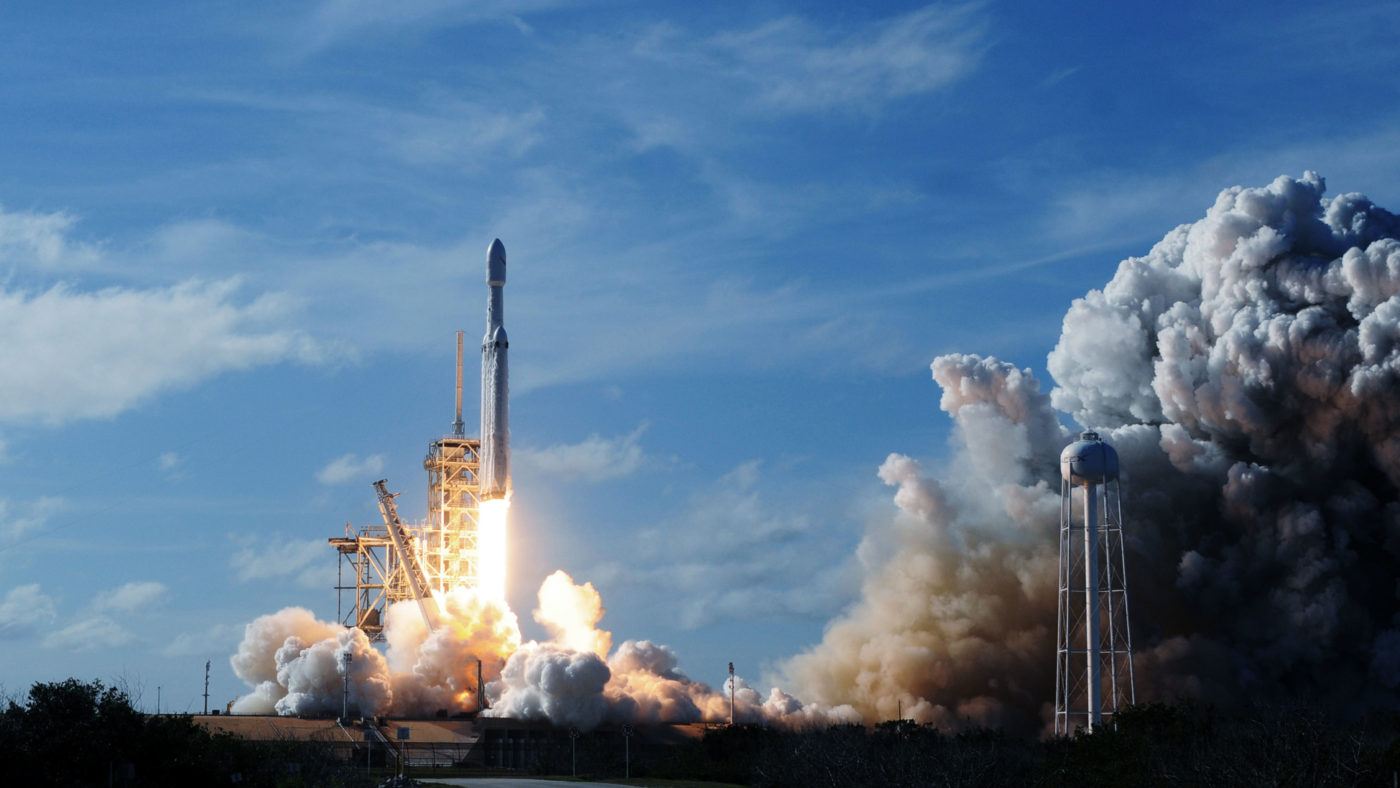That Elon Musk has stuck a used car up in the Van Allen belt is seen by those mature in the ways of business as a blindingly good piece of advertising.
The rocket had to be tested and no one’s going to put anything valuable on the first shot of a new lifting platform, so why not add $50,000 of old banger to gain worldwide exposure? Seriously, why not? Other such tests of other rockets have been, in the past, simply festooned with scrap metal – and no one watched a live stream of them.
To the sort of people who produce The Guardian, however, this is an outrage. They seem to see it as an argument that individuals, even rich ones, simply shouldn’t be the people off exploring space. That it is something that should be done by “states, communities and united peoples”, in common:
“I just reckon that when it comes to the field of human endeavour, and unshackling ourselves from what the father of cosmonautics, Konstantin Tsiolkovsky called “the cradle of humanity” in which we cannot live forever, the initiative of space exploration to unseen heights, farthest reaches and worlds beyond our world should perhaps be one of states, communities and united peoples, rather than just some rich guy.”
The laughable example that the author gives of why this would be better? The International Space Station: the most absurd of all of the political boondoggles that have surrounded space exploration. Where there has been crowding out even of taxpayer funding, let alone private money. The absurd expense of the ISS programme has meant that rocket technology has pretty much plateaued for decades. This recent irruption of the private sector by Musk and others is something which should have happened many years ago.
By contrast, the ISS was designed with two things in mind – to give the space shuttle something to do, and give Russian industry a great big hug after the death of communism. That is, the system which subjected all economic and technological advance to politics. The ISS has also produced nearly nothing of any scientific or technological – and most certainly nothing of economic – value. Possibly the most interesting thing of the entire escapade, from a personal point of view, is that it required me to risk 20-year jail sentences to finagle import licences into Russia for the space-ready chips which would allow the supply rockets to take off.
A pretty good argument, therefore, against nations doing this sort of thing. Vastly expensive, counter-productive and near useless – a fairly good description of politics.
We have other examples of the, ahem, efficiency of such a system. That Falcon appears to have a price tag of $90 million, while providing lift capacity the same as Nasa’s $1 billion competitor. So much for state direction of technology. As it happens, I have my grandfather’s Blue Streak retirement desk ornament beside me while writing this, the story of that rocket being another useful example of the thesis that political motives are less effective than the market in this sphere.
But there’s a much more insidious aspect of the argument for central control, also by chance displayed in The Guardian:
Elon Musk is right: silly and fun things are important. But some of them are an indefensible waste of resources. While there are still humanitarian crises such as that in Syria, nobody can justify vast spending on rocketry experiments.
That’s an interesting expansion of the statist delusion. Of course, it’s fine that we should have arguments about how our tax money, our collective contributions, are used. But the insistence here is that no one may use their own assets in a manner the writer disapproves of. In any manner, that is, where the political system can be twisted to make sure that they don’t.
Which is the real problem with central, state or bureaucratic control of what is done, what projects are invested in, and what money is spent upon. Only those things approved of by the central authority, state or bureaucracy will be done, invested in or funded. Which, given that such things are decided by committees, means the entire future of the species being decided by the dullards who enjoy committees. Not, I submit, a recipe for a happy and prosperous future – as the collapse of communism showed us back in 1989.
This is the great argument against state or similar control of technological experimentation. Not that the state or similar body will be more or less efficient at producing an output. But that it will constrict the paths taken, and thus leave us poorer. Political direction leaves every maniac with a grudge the power to prohibit. While the market, on the other hand, lets the maniacs get on with seeing what works.
Elon Musk, Jeff Bezos and others are doing rockets faster, better and cheaper than Nasa or Energia have ever managed or will. The launch by Musk is no basis for an argument in favour of state or central control of rockets, or indeed anything else – quite the contrary.


